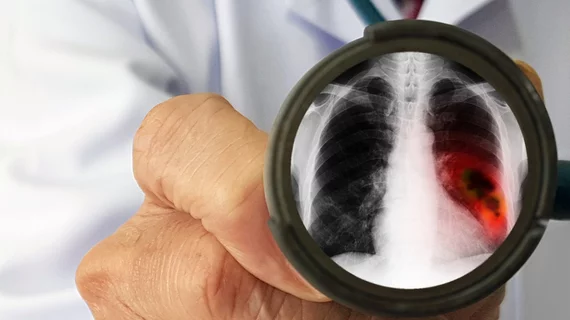Pulmonary nodules following a lung transplant require ‘aggressive’ diagnostic evaluation, experts caution
Patients who develop pulmonary nodules after a lung transplant may require “aggressive” diagnostic evaluation, experts in Detroit cautioned on Wednesday.
Such scenarios are rare, with no support supporting guidelines for approaching patient management. With a “broad” differential diagnosis in this setting—often life-threatening without treatment—radiologists must be hyper-vigilant when this situation surfaces, according to an analysis in Clinical Imaging.
“In these cases, a broad differential diagnosis must be considered. Given the high mortality associated with the most common diagnoses, aggressive diagnostic evaluation is warranted,” corresponding author Javier Diaz-Mendoza, with the Department of Pulmonary and Critical Care Medicine at Henry Ford Hospital, and colleagues wrote Nov. 11.
Diaz-Mendoza, thoracic radiologist Thomas Song, MD, and co-authors detailed the case of a 70-year female who developed a large nodule in the native lung four years after a singular transplant. Providers started her on chemo, and she has demonstrated clinical improvement at the seven-month follow-up.
Before then, providers gathered front and lateral chest radiographs and a subsequent CT scan. They noted that the main diagnostic considerations for a pulmonary nodule after a transplant are malignancy and infection, based on a literature review.
You care read more about the case study in Clinical Imaging here.

